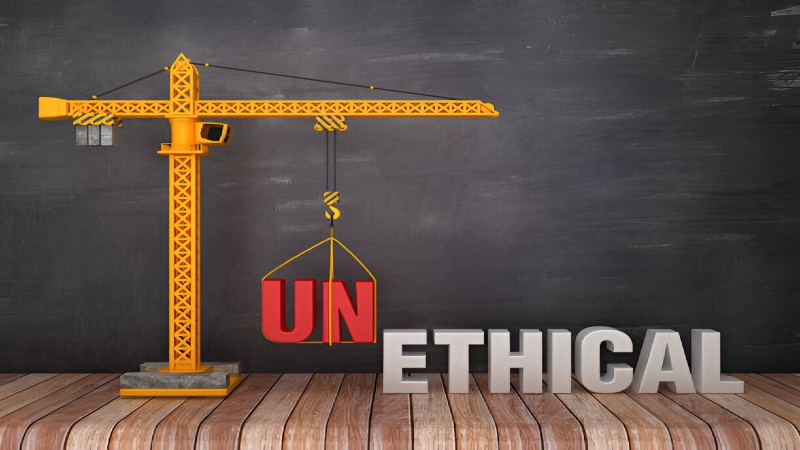
The Trust Revolution: Building an Ethical & Transparent Supply Chain System
In today’s interconnected world, a business’s reputation extends far beyond the quality of its products; it’s intricately tied to the integrity of its entire operation. Consumers, investors, and regulators are increasingly demanding to know that what they buy or support is produced ethically, sustainably, and fairly. The global supply chain is a complex web, and unethical practices—from unfair labor and exploitation to environmental damage—can hide deep within its layers.
Why Ethical & Transparent Supply Chains Are Non-Negotiable
The ethical supply chains is driven by powerful forces, making their verification a fundamental business imperative.
- Brand Reputation and Consumer Trust: In an age of instant information, a single exposé of unethical practices can severely damage a brand’s reputation, leading to significant financial losses and a drastic erosion of customer loyalty. Conversely, companies demonstrating a clear commitment to responsible practices build immense trust. Research shows that over 90% of consumers are more likely to trust a company that supports social or environmental issues, and a significant portion are willing to pay more for ethically sourced goods.
- Meeting Regulatory Demands and Mitigating Risk: Governments and international bodies are stepping up. Directives like the EU’s Corporate Sustainability Reporting Directive mandate that large companies disclose information on social and environmental risks and opportunities. A robust ethical supply chain system helps businesses avoid penalties, fines, litigation, and protects against the financial instability that can arise from unforeseen disruptions or reputational crises.
- Moral Responsibility and Employee Engagement: Beyond the tangible benefits, prioritizing ethics reflects a company’s core values. It fosters a sense of purpose within the organization, attracting and retaining talent who want to work for a responsible corporate citizen.
The Pillars of an Ethical Supply Chain
At its core, an ethical supply chain prioritizes responsible practices across all operations. This includes:
- Fair Labor Practices: This is foundational. It means ensuring fair wages, safe and healthy working conditions, prohibiting child and forced labor, and respecting workers’ rights.
- Sustainability and Environmental Responsibility: An ethical supply chain actively works to minimize its ecological footprint. This involves sustainable material sourcing, reducing waste and pollution, increasing recycling efforts, and adopting energy-efficient technologies throughout the entire product lifecycle.
- Transparency and Traceability: This is where verification comes in. Transparency means openly sharing information about how products are sourced, produced, and handled. Traceability allows for verification of these claims, ensuring accountability at every stage from raw material to final delivery.
The Nuance of Transparency
While often used interchangeably, supply chain visibility and supply chain transparency are distinct, yet complementary.
- Visibility refers to operational awareness – knowing where your shipments are, monitoring inventory levels, and tracking supplier activity. It’s about seeing the operational flow.
- Transparency goes deeper. It’s about openly sharing ethical and environmental information about how products are sourced and handled. It focuses on proving compliance and building trust externally. You can have visibility (know where a product is) without transparency (know if it was made ethically).
Building a Robust Ethical & Transparent Supply Chain
Achieving true ethical transparency requires a strategic, proactive approach, embracing both process and technology.
1. Develop a Transparency Roadmap Aligned with ESG Goals
Start by understanding your current state. Supply chain mapping is the first critical step: documenting suppliers across all tiers, their locations, and available information on their practices. From this baseline, create a roadmap that translates your Environmental, Social, and Governance (ESG) goals into clear, measurable priorities. This could involve expanding data collection, improving traceability in high-risk regions, or formalizing audit cycles.
2. Leverage Technology for Real-Time, Centralized Data
Fragmented data systems are a major barrier to transparency. Investing in the right technology is essential for building an ethical & transparent supply chain verification system at scale. Look for platforms that:
- Centralize Supplier Profiles: Aggregate disclosures, certifications, and audit results in one accessible location.
- Automate Data Management: Automatically flag missing or outdated information, reducing manual errors.
- Support Self-Assessments & Third-Party Audits: Facilitate and integrate data from various assessment methods.
- Enable Real-Time Insights: Provide internal teams with immediate access to actionable data for informed decision-making.
Cloud-based solutions are particularly effective for managing complex, global operations and ensuring supplier accountability.
3. Foster Strong, Collaborative Supplier Relationships
Transparency isn’t a one-way street; it’s a partnership. Building long-term, collaborative relationships with your suppliers can promote alignment with your ethical goals. When suppliers feel supported and valued, they’re more inclined to invest in ethical improvements and openly share data. Work with them to identify and address challenges rather than just imposing demands.
4. Monitor Progress with Clear Key Performance Indicators (KPIs)
To sustain transparency, you need to track your progress. Define a core set of KPIs that reflect both compliance and continuous improvement. These metrics could include:
- On-time Disclosure Rate: Percentage of suppliers submitting required documentation within defined periods.
- Visibility Coverage: Percentage of mapped suppliers across all tiers, categories, or regions.
- Compliance Rate: Share of suppliers meeting specific ESG or regulatory standards.
- ESG Score Improvement: Measurable gains based on audit results or third-party ratings over time.
Overcoming the Roadblocks to True Transparency
While the benefits are clear, building an ethical & transparent supply chain verification system comes with its own set of challenges.
- Complexity of Global Networks: The sheer scale and multi-tiered nature of global supply chains make consistent ethical oversight difficult.
- Cost and Resource Constraints: Implementing ethical practices and advanced verification technologies can initially be more expensive. However, studies suggest that sustainability initiatives can lead to operational cost reductions in the long run.
- Supplier Hesitation: Lower-tier suppliers may be reluctant to share sensitive data due to fear of losing business, intellectual property concerns, or simply a lack of understanding.
- Greenwashing and Misleading Claims: Businesses must be vigilant against suppliers making false or exaggerated claims about their ethical or environmental practices.
- Measuring Tangible Impact: Quantifying the exact social and environmental benefits, and the ROI of ethical initiatives, can be challenging.
Technology & Stakeholder Power
The future of supply chain transparency is being shaped by cutting-edge technology and increasing stakeholder pressure.
- Advanced Data Platforms: Tools that aggregate supplier assessments, audit results, and corrective actions are becoming standard.
- Artificial Intelligence (AI): AI can detect patterns in supplier behavior, flag emerging risks, and even help predict potential ethical breaches.
- Blockchain and Satellite Imagery: These technologies offer unprecedented levels of verifiability. Blockchain can create immutable records of transactions and origins, while satellite imagery can monitor environmental compliance or detect illicit activities.
- Third-Party Benchmarking: Expanded use of independent scoring and benchmarking systems provides consistent, unbiased evaluations of ESG performance across industries.
Conclusion
Building an ethical & transparent supply chain verification system is a complex but essential undertaking in today’s business landscape. It’s a journey that demands commitment, strategic investment in technology, and a collaborative spirit across your entire network. By embracing transparency, your business can not only protect its reputation and mitigate risks but also unlock significant opportunities for growth, build deeper trust with conscious consumers, and contribute positively to a more responsible global economy. The trust revolution is here, and a verifiable supply chain is your ticket to leading it.
Frequently Asked Questions (FAQs)
Why are ethical and transparent supply chains becoming so important for businesses?
Ethical and transparent supply chains are crucial because they build consumer trust, enhance brand reputation, ensure compliance with growing regulations, and mitigate risks of unethical practices.
What is the core difference between supply chain visibility and transparency?
Visibility refers to tracking operational aspects like shipments and inventory. Transparency goes further, involving the open sharing and verification of ethical and environmental information about how products are sourced and produced.
What are the key elements that define an ethical supply chain?
The essential elements include fair labor practices, strong environmental sustainability efforts, and a commitment to transparency and traceability throughout all tiers of the supply chain.
How can technology help in building an ethical & transparent supply chain verification system?
Technology, such as centralized data platforms, AI for risk detection, and blockchain, plays a crucial role in collecting, verifying, and managing real-time supplier data at scale, enhancing overall transparency.
What are some common challenges businesses face when trying to make their supply chains ethical and transparent? Challenges include the complexity of global networks, initial costs and resource constraints, potential supplier reluctance to share data, and difficulties in accurately measuring ethical impact.
Why is fostering strong supplier relationships important for ethical supply chains?
Collaborative, long-term relationships with suppliers promote alignment with ethical goals, encourage open data sharing, and facilitate joint efforts to improve ethical and sustainable practices.
What role do consumers and regulators play in driving supply chain transparency?
Consumers drive transparency by demanding ethically sourced products and favoring responsible brands, while regulators set minimum expectations through evolving disclosure rules and sustainability reporting standards.












